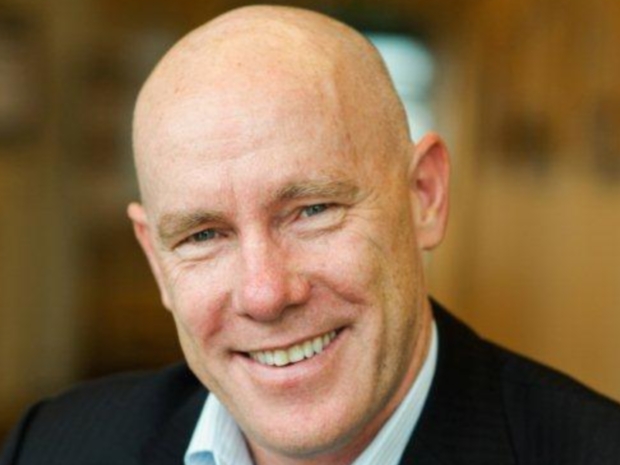Suncorp saves money through BYOD

Suncorp Group, Australia's fifth-largest bank and biggest general insurer, is considered a trailblazer in the bring-your-own-device (BYOD) space. The organisation started their BYOD journey five years ago, way before it became the hot new craze in the IT industry.

But the 2011 Queensland floods really made Suncorp take BYOD much more seriously.
Being headquartered in Brisbane, the company was hit quite hard as floodwaters flowed into the Queensland capital.
Suncorp Group's Head of Enterprise Services Paul Cameron watched on in Sydney as events unfolded.
"I was with a crisis team in Sydney when it started to get pretty bad," he said. "By midday, we sent 5,000 people home because the public transport systems were going to be shut down.
"So we sent them all home, and we opened up our network gateways and allowed 3,000 staff to log in that afternoon."
Despite the natural disaster, it was crucial for the Suncorp staff to able to work as the company was still servicing insurance claims around the country. Customers still wanted to purchase insurance policies, make claims, and so on.
At the time, the whole process of granting staff remote access to Suncorp's infrastructure was a "haphazard" affair, according to Cameron.
"We quickly worked out we needed to do something about it," he said. "And that's what we did."
With 20,000 staff servicing around nine million customers across Australia and New Zealand, Suncorp has a lot of people to consider when rolling out a new BYOD scheme. A lot of the requirements its BYOD arrangement needed to fit were extremely specific. But the company also had to think about its hip-pocket.
"We needed a full desktop experience [on a virtual desktop] for our staff that's lower cost than a physical desktop," Cameron said. "It needed to be easily managed, and needed to be a 100 per cent fit."
"It wasn't going to be about having a desktop you log in with some sort of published apps from Citrix--this was a replacement to desktops."
The BYOD program had to support the whole organisation, from treasury to actuaries, call centres to bank branches. Not only that, but the user experience had to be consistent from device to device.
"It needs to be their environment, their desktop, with their apps on it--could be call centre apps or banking apps--and they should be able to log in from any device, anywhere," Cameron said. "That's what we achieved."
After extensive in-house development work, Suncorp rolled out three models for BYOD within the organisation.
The standard model comes with basic applications such as collaboration and video conferencing, but doesn't give users anything special. It is the most cost-effective model and suits around 80 percent of Suncorp's staff.
The professional model is for users that need a more high end device or virtual desktop that may require some tricky applications. Around 15 percent of the organisation fit into this space.
The developer model, as the name suggests, is suited for developers. They are able to access Suncorp Cloud, the company's automation engine in the back-end on different devices, so are not tied to their desks.
"They can access their development environment and desktops from anywhere," Cameron said. "That was another outcome of the Brisbane floods since a lot of car parks were flooded and electricity to buildings were turned off."
"People couldn't come to work, but with this, they can."
One of the biggest hurdles was hooking up communications services for staff when they use different devices.
"Where we encountered challenges was around running video and voice all from a datacentre in Brisbane, not from desktops," Cameron said. "Microsoft told us we have one of the largest installations of an on-premise Exchange environment."
"Microsoft Outlook is normally distributed out to desktops, but ours isn't--it all runs in the back-end."
The personal mobile phone and tablet devices staff bring into work must run Apple's iOS. Corporate devices that are issued to staff are either BlackBerry or Apple. Cameron said that he is considering introducing Android OS into Suncorp, but is wary of the security risks.
"Android is difficult because it has holes in the security model, and there are so many different versions of it," he said. "Apple is much more disciplined in their release management."
Suncorp does offers corporate devices to some staff, and data on those machines are easily managed. But for privately-owned devices, Suncorp ensures that all its data is under central control and encrypted. On personal devices, the corporate data is put in a secure container, effectively a sandbox, and is kept separate from the personal data. This is done using software from a US-based vendor, according to Cameron.
"A little container can be put around the device, so when we do wipe the corporate data, we don't have litigation concerns," he said.
Through all the BYOD initiatives, Suncorp has derived tangible savings, especially from being able to shutdown unused buildings and moving to smaller premises with the aid of hot-desking.
The company recently closed down a building in Brisbane that used to hold 900 staff. In Sydney and Melbourne it has also shut down more buildings, and staff are moved to smaller premises.
"The key contributor is a flexible and smart working environment," Cameron said. "We also have something called a concierge device, which is not owned by anybody or has a desk at the office.
The concierge device can be assigned to a worker to be used within an office, and is handed back to administration staff at the end of the day.
Suncorp is also moving a lot of its workforce to work from home. The company trialled a pilot of this arrangement in Melbourne where 400 people from its call centres were sent to work at home. It was extremely popular and was a great way to retain staff, according to Cameron.
Having to train up staff to replace those that have left is a costly business, and BYOD has been an effective staff retention tool for Suncorp.
"We had a graduate, a very young IT worker, who was going backpacking in Europe, staying with his mates in a shared house in the UK while working at a pub," Cameron said. "We told him, 'why don't you keep doing what you have been doing for us, but just access our systems from the UK?' and he agreed."
"So he ended up being the wealthiest kid in the shared house. He worked at different hours than our team, and used to just go through tickets all night long. It worked out pretty well, and he came back as well."
Suncorp has reaped plenty of productivity benefits, but Cameron wanted to stress the significant financial gains it has made through BYOD.
"This is not hearsay," he said. "We have actually done it and achieved it."